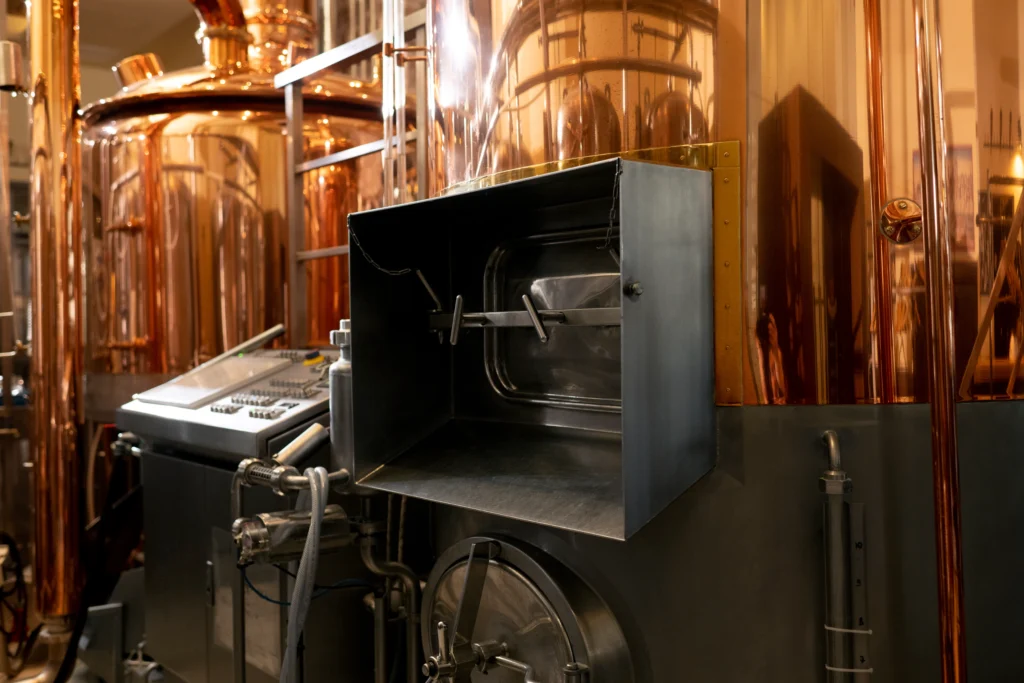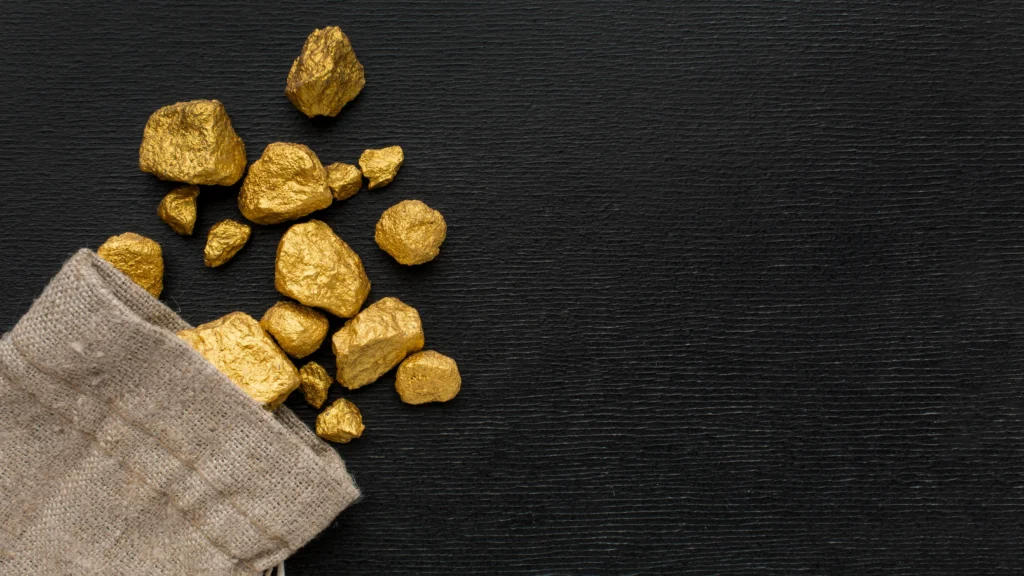RahulRefinery
25.06.2025
How to Refine Gold to Higher Purity: A Technical Guide
Hello Reader!
Welcome to the blog page of Rahul Refinery, one of the best gold seller in Kolkata.
Gold has been one of the most treasured metals for centuries, symbolizing wealth, stability, and luxury. However, gold extracted from mines or recycled from old jewelry is rarely pure. It often contains other metals such as silver, copper, and zinc. At Rahul Refinery, we specialize in techniques to refine gold to its highest possible purity, making us recognized a.s the best gold seller in Kolkata for quality and trust.
This blog will walk you through how to refine gold using technical, scientific methods while ensuring safety, efficiency, and exceptional purity standards.
Table of Contents

Why is Gold Refining Important?
Gold in its raw or impure form contains significant impurities that diminish its value. To transform it into investment-grade bullion, jewelry-grade material, or pure coins, it’s essential to refine gold.
At Rahul Refinery, our refining process ensures:
- Higher market value for the metal
- Better crafting quality for jewelers
- Industry-standard purity (up to 99.99%)
- Eco-friendly and safe procedures
Being the best gold seller in Kolkata, we maintain unmatched standards in both ethical sourcing and refining techniques.
Step-by-Step Process to Refine Gold Technically
1. Collection and Initial Assay
Gold in scrap form or as dore bars is collected and assayed to determine initial purity. This is done using:
- XRF Spectrometry
- Fire Assay (Cupellation)
These tests help us decide the method we’ll use to refine gold efficiently.
2. Melting
The gold is melted in a furnace at over 1,000°C. This step:
- Removes base metals
- Allows for homogenization
- Prepares the material for chemical refining
The molten gold is poured into molds to form small bars or granules for further processing.
3. Chemical Refining Methods
Aqua Regia Process
- Used for: Medium-purity scrap gold
- Gold is dissolved in a mixture of hydrochloric acid and nitric acid.
- The resulting solution contains gold chloride.
- After filtration, gold is precipitated out using reducing agents like sodium metabisulfite.
This method can achieve 99.5%–99.99% purity when performed precisely.
Electrolytic Refining
- Used for: High-purity needs such as bullion
- Gold is placed as an anode in an electrolyte solution.
- Pure gold gets deposited on the cathode, while impurities settle as “anode mud.”
Electrolytic refining is the go-to method at Rahul Refinery, helping us maintain our reputation as the best gold seller in Kolkata for ultra-pure gold.
4. Drying and Melting of Refined Gold
Once pure gold is recovered, it is:
- Washed thoroughly
- Dried
- Re-melted and poured into bars or granules
- Assayed again to confirm final purity (up to 999.9 fineness)
Each step is carefully monitored to ensure consistency and premium quality, which sets Rahul Refinery apart as the best gold seller in Kolkata.

Common Chemicals & Equipment Used to Refine Gold
- Aqua Regia: Mixture of HCl and HNO₃ for dissolving gold
- Sodium Metabisulfite: Reducing agent to precipitate gold
- Urea: Neutralizes excess nitric acid
- Borax & Soda Ash: Used in melting to remove oxide impurities
- Fume Hood & PPE: For safety while handling chemicals
We follow all environmental and safety regulations while using these chemicals to refine gold, protecting both our staff and the environment.
Benefits of Technically Refined Gold
- High Resale Value: Purity ensures higher pricing in the market
- Consistency: Jewelers and investors trust our product quality
- Recyclability: Ideal for converting old jewelry into new
- Global Standards: Meets international benchmarks for purity
That’s why more and more jewelers and investors in Kolkata choose Rahul Refinery, the best gold seller in Kolkata, for buying and selling refined gold.
Also Read: How Do Gold Buyers Determine the Purity and Value of Gold?

How to Refine Gold to Higher Purity: A Technical Guide
Gold purity directly impacts its value, durability, and suitability for investment or jewelry. At Rahul Refinery, recognized as the best gold seller in Kolkata, we specialize in advanced techniques to refine gold to exceptional purity levels (99.5% to 99.99%). This technical guide explores proven methods to achieve higher purity, ensuring your gold meets the highest standards.
Why Refine Gold?
Raw gold often contains impurities like silver, copper, nickel, and platinum-group metals. These reduce its market value and structural integrity. Refining gold to higher purity is essential for:
- Maximizing investment value (higher purity = higher price).
- Ensuring durability in jewelry and industrial applications.
- Meeting certification standards (e.g., 24-karat gold).
As the best gold seller in Kolkata, Rahul Refinery guarantees transparency and precision in every refinement process.
Technical Methods to Refine Gold to Higher Purity
1. Aqua Regia Process: Chemical Refinement
Best for small-scale refining and recovering gold from scrap.
Procedure:
- Dissolution: Granulated gold is dissolved in aqua regia (3:1 HCl:HNO₃), forming soluble chloroauric acid.
- Filtration: Impurities (e.g., silver chloride) are filtered out.
- Precipitation: Gold is precipitated using sodium metabisulfite or oxalic acid.
- Washing & Melting: Precipitated gold powder is washed, dried, and melted into bars.
Purity: Up to 99.9% with meticulous chemical ratios.
2. Electrolytic Refining: Precision for Ultra-High Purity
Ideal for achieving 99.99% (“four nines”) purity.
Procedure:
- Anode Preparation: Impure gold is cast into anodes.
- Electrolyte Solution: Gold chloride or cyanide solution serves as the electrolyte.
- Electrolysis: An electric current dissolves gold from the anode, depositing pure gold onto a cathode.
- Slime Removal: Impurities collect as anode slime.
Advantage: Unmatched purity (99.99%) with minimal chemical waste.
3. Miller Process: Pyrometallurgical Efficiency
Best for large-scale operations.
Procedure:
- Chlorination: Chlorine gas is bubbled through molten gold.
- Impurity Separation: Base metals form chlorides and float as slag.
- Slag Removal: Slag is skimmed off, leaving purified gold.
Purity: Up to 99.5% quickly, but less precise than electrolysis.
4. Advanced Techniques for Ultra-High Purity (99.999%)
- Multi-Stage Aqua Regia: Repeat dissolution and precipitation 7+ times to remove trace metals like Pd or Cu.
- Zone Refining: For semiconductor-grade gold, a molten zone passes through a gold bar, concentrating impurities at one end.
Critical Factors for Achieving Higher Purity
| Factor | Impact | Optimization |
| Temperature Control | Prevents uneven melting/impurity trapping | Maintain 1,064°C (gold’s melting point) ±10°C. |
| Chemical Ratios | Inaccurate ratios reduce yield/purity | Use 3:1 HCl:HNO₃ for aqua regia; monitor pH. |
| Equipment Cleanliness | Contaminants compromise purity | Use quartz/ceramic tools; deionize water. |
| Process Duration | Rushing causes incomplete impurity removal | Electrolysis: 24–48 hours; Aqua Regia: 12+ hours. |
Safety and Environmental Best Practices
Refining gold involves toxic chemicals (e.g., cyanide, aqua regia) and high temperatures. As the best gold seller in Kolkata, Rahul Refinery adheres to:
- Ventilation & PPE: Fume hoods, gloves, and goggles are mandatory.
- Waste Management: Neutralize acids before disposal; recycle solvents.
- Efficiency: Electrolysis reduces chemical use vs. Aqua Regia.

How does Rahul Refinery, as the best gold seller in Kolkata, ensure top-quality refined gold?
- Advanced Refining Methods: Rahul Refinery employs state-of-the-art refining techniques to process every gram of gold to the highest purity levels. These methods include both chemical and electrolytic processes, ensuring that impurities are thoroughly removed and the final product meets or exceeds industry standards.
- Precise Purity Testing: The refinery uses X-Ray Fluorescence (XRF) technology for purity analysis, which is a non-invasive, quick, and highly accurate method to determine the exact composition of gold. This ensures that customers receive gold of verifiable and consistent quality.
- Strict Quality Assurance: Every batch of refined gold undergoes meticulous assaying and quality checks. This includes weighing, melting, and testing each lot separately, guaranteeing that the minimum purity—often 99.5% or higher—is consistently achieved.
- Integrity and Transparency: Rahul Refinery has built a reputation for precision, integrity, and ingenious practices, making it a trusted name in gold refining and analysis. The company’s transparent processes and commitment to excellence empower clients to trust the quality of their gold investments.

Why is chemical control crucial in the process of refining gold at a professional level?
- Precision in Chemical Ratios: The effectiveness of gold dissolution and impurity removal hinges on the exact ratios of acids and reagents used. For example, in the aqua regia process, the correct balance of hydrochloric and nitric acids is essential; any deviation can result in incomplete dissolution or loss of gold, directly affecting final purity.
- Controlled Reaction Conditions: Temperature, concentration, and flow rates must be meticulously regulated. In processes like Miller chlorination, improper chlorine flow or temperature can lead to incomplete impurity removal or gold loss, making careful control essential for achieving high-purity results.
- Selective Precipitation and Separation: Chemical agents such as sodium metabisulfite or ferrous sulfate are used to selectively precipitate gold from solution. The timing, dosage, and mixing must be precisely controlled to ensure maximum recovery and prevent contamination.
- Quality and Safety Assurance: Strict chemical control minimizes the risk of hazardous reactions, ensures safe handling and disposal of waste, and helps meet environmental regulations. It also prevents cross-contamination, which can compromise the quality of the refined gold.
- Consistent High Purity: Only with exact chemical control can refiners consistently produce gold of 99.5%–99.99% purity, meeting the demanding standards required for investment, jewelry, or industrial use
What safety measures does Rahul Refinery implement during complex refining processes?
Rahul Refinery, as the best gold seller in Kolkata, implements a comprehensive set of safety measures during complex gold refining processes to protect workers, the environment, and the integrity of the final product.
- Green Chemistry and Safer Chemicals: Rahul Refinery prioritizes eco-friendly gold refining by utilizing less harmful chemicals and adopting sustainable processing methods. This reduces the risks associated with toxic substances and minimizes environmental impact.
- Personal Protective Equipment (PPE): All personnel are required to wear appropriate PPE, including gloves, safety glasses, respiratory protection, and flame-resistant clothing, to safeguard against chemical exposure and physical hazards.
- Process Safety Management: The refinery follows robust process safety management systems, including thorough hazard analysis, preventative maintenance, and emergency response planning. This ensures that risks related to handling hazardous substances are systematically identified and mitigated.
- Permit to Work and Risk Assessment: Before starting any potentially hazardous operation, a permit to work system is enforced. This includes comprehensive risk assessments, formal authorization, and clear documentation of safety protocols and emergency procedures.
- Confined Space and Hot Work Protocols: Strict procedures are in place for confined space entry and hot work (such as welding or cutting). These include continuous atmospheric monitoring, proper ventilation, and fire watch assignments to prevent accidents.
- Equipment Maintenance: Regular and predictive maintenance schedules are implemented to prevent equipment failures and reduce downtime, ensuring safe and efficient operation of all refining machinery.
- Access Control and Security: The refinery maintains controlled access to process areas, restricting unauthorized personnel and vehicles, especially in zones where flammable or hazardous materials are handled.
- Emergency Preparedness: Rahul Refinery conducts regular emergency drills, maintains clear evacuation plans, and ensures all staff are trained to respond swiftly to incidents such as chemical spills, fires, or equipment malfunctions.
- Environmental Safeguards: Waste products and effluents are managed according to strict environmental standards, with systems in place for neutralizing and safely disposing of chemicals used during the refining process.

FAQ
1. What does it mean to refine gold?
Refining gold means removing impurities like silver, copper, and other metals to increase its purity, often up to 99.99%.
2. What are the main methods used to refine gold?
The most common methods include Aqua Regia chemical refining and electrolytic refining, both capable of producing high-purity gold.
3. Is melting gold the same as refining it?
No, melting only changes gold’s form, while refining involves chemical or electrochemical processes to purify it.
4. What purity level can be achieved through professional refining?
Using proper techniques, gold can be refined up to 999.9 fineness (24K), which is considered investment-grade purity.
5. Where can I refine gold professionally in Kolkata?
You can visit Rahul Refinery, the best gold seller in Kolkata, for trusted and technically advanced gold refining services.
Why Choose Rahul Refinery?
- State-of-the-art refining technology
- Transparent assay and billing process
- ISO-grade purity verification
- Quick turnaround and trusted service
- The highest value on old or scrap gold
Whether you’re a jeweler, an investor, or an individual looking to refine or sell gold, Rahul Refinery is your trusted partner — truly the best gold seller in Kolkata.
Final Thoughts
Refining gold is a delicate balance of science, skill, and safety. At Rahul Refinery, we combine decades of experience with the latest refining technology to bring you the purest gold in the market. If you’re looking to refine gold or buy high-purity gold, trust none other than the best gold seller in Kolkata.



